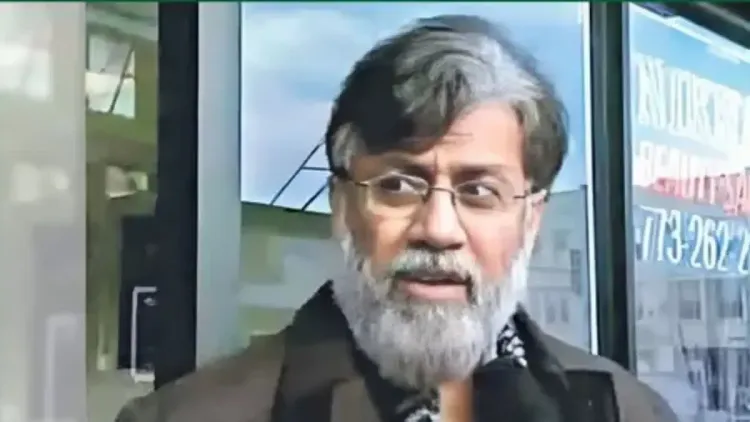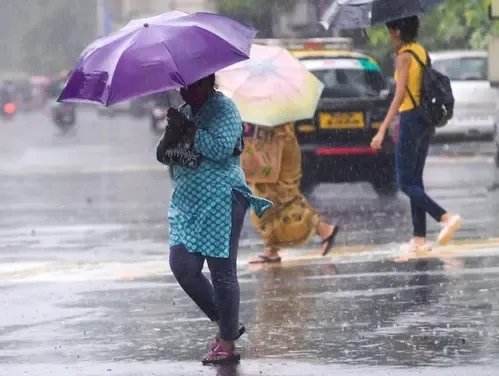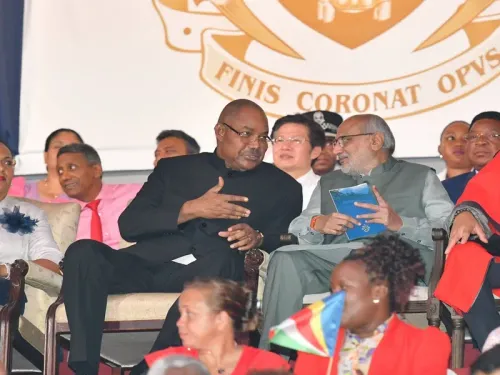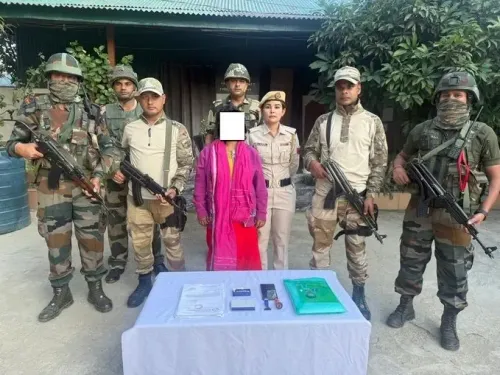Flight Carrying 26/11 Suspect Tahawwur Rana Arrives in Delhi Today

Synopsis
Key Takeaways
- Tahawwur Rana extradited from the US to India.
- He faces serious charges, including murder and conspiracy.
- Rana's extradition is viewed as a diplomatic success for PM Modi.
- His arrival may lead to long-awaited legal proceedings.
- Rana has connections with global terror networks.
New Delhi, April 10 (NationPress) Tahawwur Hussain Rana, one of India's most sought-after fugitives linked to the 26/11 Mumbai terror attacks, is on his way to New Delhi following his extradition from the United States after he exhausted all legal options to delay the process.
A specially chartered flight transporting the 64-year-old departed from the US on Wednesday, April 9, marking a pivotal moment in India's quest for justice regarding the 2008 terror attack that claimed 166 lives.
According to sources, Rana, a Canadian-American of Pakistani descent, is anticipated to arrive in New Delhi later today. Upon landing, he will be taken into custody by the National Investigation Agency (NIA), which, in collaboration with the Research and Analysis Wing (RAW), is overseeing his extradition. It is expected that he will soon be presented before a court in Delhi.
Rana faces multiple charges, including criminal conspiracy, waging war against the Government of India, murder, forgery, and violations under the Unlawful Activities (Prevention) Act. The Mumbai Police have not yet received formal notification regarding his transfer to the city.
On Wednesday, Union Home Minister Amit Shah praised the extradition as a significant diplomatic achievement for Prime Minister Narendra Modi's administration.
"Tahawwur Rana's extradition is a major success of Prime Minister Modi's diplomacy," Shah stated, describing it as a landmark victory for the government and a step toward providing justice for the victims of the horrific attacks.
Rana's extradition signals the commencement of long-awaited legal actions concerning one of the most catastrophic terror incidents in India's recent history.
Officially transferred to the NIA on April 8, 2025, in California, Rana had engaged in an extensive legal struggle in the US to avoid extradition to India. His legal representatives filed numerous appeals, including one to the US Supreme Court, all of which were ultimately dismissed.
In his defense, Rana pointed to deteriorating health issues, such as Parkinson's disease, a serious abdominal aneurysm, and symptoms of bladder cancer, asserting that these conditions rendered him unfit for trial in India.
However, the US courts were not persuaded by his claims, and his final appeal was rejected on April 7.
The extradition fulfills a prior commitment reportedly made by former US President Donald Trump during discussions with Prime Minister Modi.
A known associate of David Coleman Headley—another key figure in the 26/11 conspiracy—Rana is thought to have close ties with Pakistan's Inter-Services Intelligence (ISI) and the terrorist organization Lashkar-e-Taiba.
Although a US jury had previously acquitted Rana of directly aiding the Mumbai attacks, he was convicted on separate terrorism counts and served over a decade in prison.
He was released during the Covid-19 pandemic on health grounds but was re-arrested in 2020 following India's extradition request, leading to the current situation.
Rana's arrival in India opens a vital chapter in the investigation into the 2008 Mumbai attacks, potentially providing insights into the deeper connections between global terror networks and state-sponsored entities. The Indian government is likely to advocate for a prompt trial in this high-profile case.









